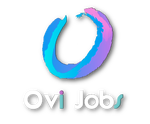Why do you want to work here? It’s a common interview question, but also one that can be challenging to answer, especially when you try to wing it. Not preparing a solid response to this question is risky because it could make all the difference in whether a potential employer extends a job offer to you — or not.
Why is this interview question so important? Think of it from the employer’s perspective: The business wants to hire someone who believes strongly in the company’s mission and wants to make a positive impact on the organization and its clients or customers. Also, searching for a candidate who is a strong fit for the position and the company can be a costly and time-consuming process. So, hiring managers want to help their employers realize a good return on their investment.
When might you hear the “Why do you want to work here?” question? At any point in the job interview, really. However, you’re most likely to encounter it early in the meeting, when the interviewer may use it to set the tone for the conversation. It can also come up toward the end of the interview, as the hiring manager seeks to confirm your interest and enthusiasm for the opportunity now that you’ve learned more about it.
Be on the lookout for other forms of the question, such as, “Why do you want to work with us?” and “Why are you interested in this position?” Combined, these are among the questions most commonly asked when you interview for jobs.
Examples of what not to say
Exactly how you should respond to the question of “Why do you want to work here?” depends on the job and the organization — and, of course, you and how you want to express yourself. Knowing how to formulate a meaningful response to suit mostalmost any interview situation begins with understanding what employers probably don’t want to hear. Some examples include:
- “Honestly, I just need a job and this one looked interesting.” This is a candid response, to be sure. But it does nothing to demonstrate a sincere interest in the role or company. Plus, the hiring manager might have concerns that you’d be quick to leave the firm for another opportunity you find more compelling.
- “I’ve heard this company offers good pay and benefits.” Any company wants to be viewed as an employer of choice, and leading firms recognize that they must offer competitive compensation to hire top talent. That said, they don’t want to recruit people whose primary motivation to work for the business is money.
- “I see this as a step to bigger and better things.” While no employer expects every worker to stay with the organization for the long term, a response like this one implies you’re more focused on the future than the now. It also suggests that you already have one foot out the door before you’ve even been hired.
Careful approach to explaining why you want the position
One of the keys to coming up with a compelling answer to “Why do you want to work here?” is to flip the question, like this: “Why would this company want to hire me?” In other words, think more about what you have to offer, and how you could make an impact than why getting the job would benefit you. Here are a few things to consider as you develop your response:
- How can you help the company succeed? Read up on what’s happening with the company and its industry. Has it recently changed its product or service offerings? What competitive pressures is it facing? Consider this landscape and think, “What knowledge and experience do I have that would be especially useful to this employer right now?”
- What past career successes could you potentially repeat at this company? In previous jobs, how did you meet or exceed your employers’ expectations? What problems did you play a major role in solving? What ideas did you introduce that helped the company save money or otherwise boost its bottom line? What lessons have you learned that you could apply in the future to create value for the potential employer?
- How will you complement the company’s culture? A candidate’s ability to fit within the organizational culture is an important hiring factor for many employers. So, do your homework on the company’s culture and identify what you find most appealing about it. For instance, if the firm encourages entrepreneurial thinking and that’s important to you, include that in your response.
Rolling out your response with a smooth lead-in
When you’re asked, “Why do you want to work here?”or “Why are you interested in this position?” in an actual interview situation, you want to deliver your prepared answer in a way that sounds polished but natural. Consider using one of the following lead-ins as the inspiration for crafting your tailored response:
- “I see this opportunity as a way to contribute to an exciting/forward-thinking/fast-moving company/industry, and I feel I can do so by/with my … ”
- “I feel my skills are particularly well-suited to this position because … ”
- “I believe I have the type of knowledge to succeed in this role and at the company because … ”
- “I’m excited about this job opportunity, as it would allow me to … ”
When faced with the question “Why do you want to work here?” (or other challenging ones like “Tell me about yourself” and “What are your greatest weaknesses?”), some job seekers freeze up because they worry that they’ll say the wrong thing. But if you anticipate the question and take time to prepare an answer before the interview, you’ll avoid feeling flummoxed — and your chances of hitting the mark with a winning answer will rise.







